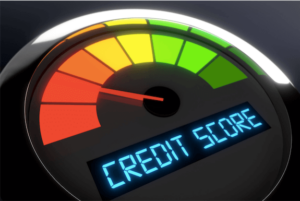Personal loans have become increasingly popular, acting as the fastest growing form of consumer lending in America. In fact, according to the Chamber of Commerce there are 21.1 million outstanding personal loans in the United States alone.
A key eligibility criteria for securing a personal loan is an applicant’s credit score. This is because a customer’s credit history and credit score serve as an indicator of their ability to borrow and repay back the loan.
However, what if you find yourself in a situation where you have no credit history at all? Can you still obtain a personal loan? This article aims to explore the possibilities of getting a personal loan with no credit, the challenges involved and potential alternatives for individuals in this situation.
What Is A Personal Loan?
A personal loan is a type of loan that individuals can obtain from a financial institution, such as a bank, credit union or online lender, to meet their personal financial needs. Unlike loans specifically designed for a particular purpose, such as a mortgage for buying a house or an auto loan for purchasing a car, a personal loan is a multipurpose loan that can be used for a variety of purposes.
With a personal loan, borrowers receive a lump sum of money upfront from the lender. The loan amount, interest rate and repayment terms are typically agreed upon between the borrower and the lender at the time of loan approval. The borrower is then responsible for repaying the loan amount, usually in monthly installments, over a specified period of time.
Personal loans are generally unsecured, which means they do not require collateral such as a house or car to secure the loan. Instead, personal loans are approved based on factors such as the borrower’s creditworthiness and income.
The funds obtained through a personal loan can be used for various purposes, including debt consolidation, home renovations, medical expenses, car repairs, wedding costs, educational expenses, travel or any other personal financial needs. The flexibility of personal loans allows borrowers to use the funds according to their specific requirements.
What Does It Mean If You Have No Credit?
Having no credit means you have not yet established a credit history. It typically occurs when you have not borrowed money before, such as if you are a young adult or someone who has never taken out a loan or had a credit card.
Without a credit history, lenders have no information to assess your creditworthiness, making it challenging for them to determine your risk as a borrower. In turn, this can make it more difficult to qualify for a personal loan.

What Are The Challenges Of Obtaining A Personal Loan With No Credit?
When you have no credit history, traditional lenders may be hesitant to approve your loan application. Lenders rely on credit history to assess your borrowing and repayment behavior, which helps them make informed decisions regarding loan approvals. Without this information, lenders perceive you as a higher risk borrower, as they have no track record to evaluate your ability to handle debt obligations.
How Can You Borrow A Personal Loan With No Credit?
Fortunately, there are ways you can try to borrow money if you have little or no credit. This includes:
Secured Loans
A secured personal loan involves providing collateral to the lender, such as a savings account, certificate of deposit (CD) or other valuable assets. By securing the loan, you offer the lender an added layer of security, mitigating the risk associated with no credit history. If you fail to repay the loan, the lender can claim the collateral as repayment.
Credit Builder Loans
Credit builder loans are specifically designed to help individuals establish credit. With a credit builder loan, you borrow a small amount of money from a lender, typically held in a savings account or certificate of deposit. As you make regular payments on time, the lender reports these payments to credit bureaus, helping you build a positive credit history.
Co-Signer or Guarantor
Having a co-signer with an established credit history can significantly increase your chances of obtaining a personal loan. A co-signer agrees to take responsibility for the loan if you default, providing reassurance to the lender. It’s important to understand that the co-signer’s credit and financial well-being will be at risk if you are unable to repay the loan.

Credit Unions
Credit unions are nonprofit financial institutions that often have more flexible lending criteria compared to traditional banks.They may be more willing to consider other factors beyond just credit history, such as employment stability and income. Building a relationship with a credit union, such as opening a savings account or becoming a member, can increase your chances of obtaining a personal loan.
Online Lenders
Online lenders, particularly those specializing in loans for individuals with no credit or limited credit history, may be more open to considering your application. These lenders often evaluate other factors such as educational background, employment history and income potential. However, it’s crucial to carefully review the terms, interest rates and fees associated with online loans, as they can sometimes carry higher costs due to the larger level of risk involved.
What Are Alternatives To Personal Loans?
When personal loans are not a suitable option or unavailable, there are several alternatives that individuals can consider to meet their financial needs. These alternatives include:
| Credit Cards: | Credit cards can be a convenient alternative to personal loans, especially for smaller purchases or short-term borrowing. They provide a revolving line of credit that allows borrowers to make purchases up to their credit limit. However, it’s important to use credit cards responsibly and pay off the balance in full each month to avoid high interest charges. |
| Home Equity Loans or Lines of Credit: | If you own a home and have built up equity, you may consider a home equity loan or a home equity line of credit (HELOC). These loans allow you to borrow against the value of your home. Home equity loans provide a lump sum of money with a fixed interest rate, while a HELOC functions like a credit card, allowing you to borrow as needed up to a certain limit. |
| Peer-to-Peer Lending: | Peer-to-peer lending platforms connect borrowers directly with individual investors who are willing to lend money. These platforms typically have less stringent requirements than traditional banks and may offer competitive interest rates. Peer-to-peer lending can be a viable alternative for individuals with limited credit history or who have difficulty obtaining loans from traditional lenders. |
| Borrowing from Friends or Family: | If you have a trusted network of friends or family members who are willing and able to lend you money, this can be an alternative to consider. However, it’s important to approach such arrangements with caution and establish clear repayment terms to avoid potential conflicts or strain on relationships. |
| 401(k) Loans: | If you have a 401(k) retirement savings plan, you may have the option to borrow against it. This alternative allows you to access funds without a credit check, although it’s important to be aware of the potential long-term impact on your retirement savings and any associated fees or tax implications. |
| Government Assistance Programs: | Depending on your specific circumstances, you may qualify for government assistance programs or grants that can help you meet your financial needs. These programs can vary depending on your location and situation, so it’s worth researching and exploring available options. |
It’s crucial to carefully evaluate the terms, interest rates, fees, and repayment options associated with any alternative borrowing methods. It’s also advisable to consider your own financial situation, goals, and repayment ability before deciding on the most suitable alternative to a personal loan.
Conclusion
While having no credit history can pose challenges when applying for a personal loan, there are alternative options available to help you secure financing. Considering secured loans, credit builder loans, co-signers or guarantors, credit unions and online lenders can increase your chances of obtaining a personal loan without a credit history. Or alternatively you can think about other options such as borrowing money from family or friends.
It’s important to remember that building credit takes time. Responsible financial behavior, such as making payments on time and managing your finances wisely, will eventually lead to the establishment of a positive credit history.




